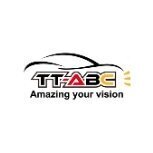-
Welcome to Auto Parts Forum
Whether you are a veteran automotive parts guru or just someone looking for some quick auto parts advice, register today and start a new topic in our forum. Registration is free and you can even sign up with social network platforms such as Facebook, X, and LinkedIn.
What Headlight Bulb Do I Need For My Car?
-
Similar Topics
-
By jeff C
I've been looking everywhere for a replacement driveshaft for my automatic 2006 saab92x and I can't find one. Is it even replaceable?
-
By CarPartAU
Are you looking for some stores to buy used or new car parts? If so, then Car Part is the place for you. Rather than sharing a limited list of stores, we at Car Part have come with the list of the best link hidden, please login to view. These sites will connect you with a large number of car part sellers across Australia. Without wasting much time, fill out the form and click send a request button. To know more, visit us today.
-
By markbenn
In the hustle and bustle of our daily lives, it’s easy to overlook the care that our vehicles need to perform at their best. However, beneath the hood lies a complex machinery that requires regular attention and maintenance. Welcome to a journey where we unveil the myriad benefits that come with making regular visits to your trusted car workshop. From performance enhancements to ensuring safety on the road, the advantages of routine professional care are both extensive and impactful.
1. Performance Optimization: The Tuning Touch
One of the most noticeable benefits of regular car workshop visits is the optimized performance of your vehicle. Expert mechanics have the know-how to fine-tune your engine, ensuring it operates at its peak efficiency. From adjusting the fuel injection system to optimizing the ignition timing, these tweaks contribute to a smoother and more powerful driving experience. Your car becomes a well-oiled machine, responding to your commands with precision and grace.
2. Preventive Maintenance: Nipping Issues in the Bud
Prevention is often better than cure, and this holds true in the world of automotive care. Regular workshop visits involve thorough inspections and diagnostics, allowing mechanics to identify potential issues before they escalate into major problems. From checking fluid levels to inspecting the braking system, these preventive measures can save you from costly repairs down the road. It’s a proactive approach to car care that keeps you ahead of the curve.
3. Fuel Efficiency Unleashed: The Economic Advantage
In a world where fuel prices can fluctuate, every drop counts. Regular car servicing plays a crucial role in maintaining optimal fuel efficiency. Mechanics ensure that your engine is running at its most efficient, preventing fuel wastage. Simple adjustments and replacements, such as changing air filters and spark plugs, can have a significant impact on your car’s mileage. The result? More miles per gallon and less strain on your wallet at the pump.
4. Safety First: Ensuring Roadworthiness
Safety should always be a top priority on the road, and regular car workshop visits contribute significantly to this aspect. Mechanics conduct comprehensive safety checks, examining crucial components like brakes, lights, and tires. Identifying and addressing potential safety hazards ensures that you and your passengers are protected while driving. It’s not just about keeping your car in good shape; it’s about safeguarding lives on the road.
5. Resale Value Resilience: Investing in the Future
Beyond immediate benefits, regular workshop visits contribute to the long-term value of your vehicle. A well-maintained car with a comprehensive service history is more attractive to potential buyers. When the time comes to upgrade or sell, having a record of regular professional care can significantly boost your car’s resale value. It’s an investment in the future that pays off when you decide to part ways with your trusted vehicle.
6. Technology Triumphs: Staying Current in the Automotive World
The automotive industry is constantly evolving, with new technologies emerging to enhance the driving experience. Regular workshop visits keep your car abreast of these innovations. Whether it’s updating software systems, integrating new safety features, or addressing recalls, staying connected to your workshop ensures that your vehicle remains technologically competitive. Embracing these advancements not only improves your driving experience but also enhances the overall safety and efficiency of your car.
7. Peace of Mind Driving: The Emotional Benefits
Last but certainly not least, there’s a unique peace of mind that comes with knowing your vehicle is in expert hands. Regular car workshop visits mean that your car is receiving the care it deserves. You can drive with confidence, knowing that potential issues are being addressed, and your vehicle is well-prepared for the challenges of the road. It’s an emotional benefit that extends beyond the mechanical aspects, fostering a worry-free and enjoyable driving experience.
How Service My Car Assists You?
Have you reached a point where you’re questioning, “Where can I find the top car workshop for my Car?” Look no further. At Service My Car, we provide premium car servicing, repair, and link hidden, please login to view services, always within your reach. With specialized service offerings for your car and comprehensive service packages, we ensure the collection and drop-off of your vehicle following its maintenance.
In conclusion, the benefits of regular car workshop visits extend far beyond the basic idea of maintenance. It’s about unlocking the full potential of your vehicle, ensuring safety, optimizing performance, and making a wise investment in its longevity. So, the next time you hear the call for routine maintenance, embrace it as an opportunity to unveil the hidden advantages that come with caring for your car. After all, it’s not just a vehicle; it’s a companion on the journey of life.
-
By TT-ABC
TT-ABC produces various brands of car headlights and taillights. For example, Toyota (Camry, 4Runner, Land Cruiser, FJ Cruiser, Prado, Highlander, Avalon, CHR), Honda (Accord, Civic, Jazz, CR-V), BMW, Mercedes-Benz, Lexus, Ford, Tesla, Land Rover, Dodge, Chevrolet, Mitsubishi, Cadillac, Nissan, Hyundai, etc. We support bulk purchases and custom development. We launch new products every month. You can follow our social media accounts and our official website (search "TT-ABC" on Google). We have sales promotions on various platforms. You can search TT-ABC on various platforms to find us. Our company has always been known for its service. Our headlights and taillights have a one-year warranty and 24-hour quick response.
This is our official store:
link hidden, please login to view





Recommended Posts
Join the conversation
You can post now and register later. If you have an account, sign in now to post with your account.
Note: Your post will require moderator approval before it will be visible.